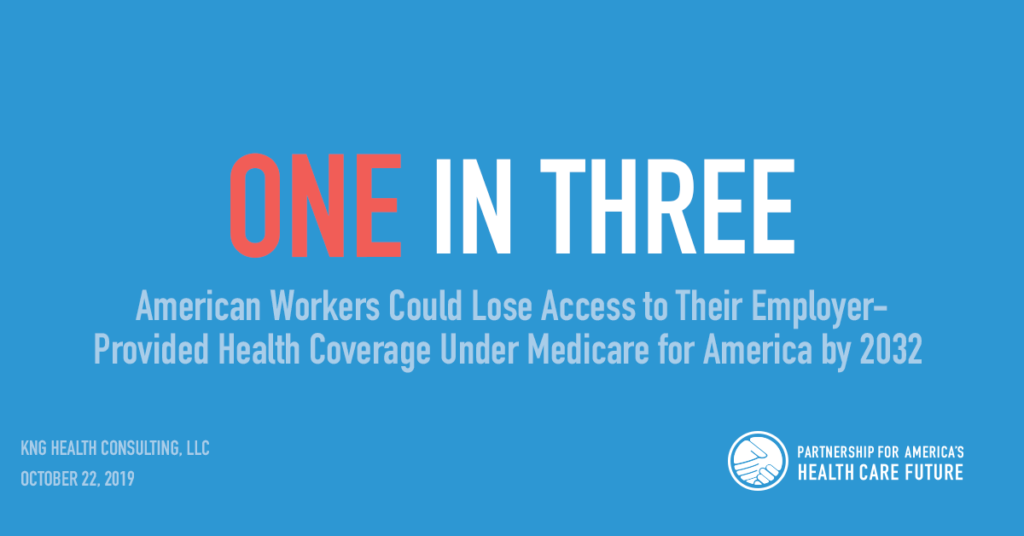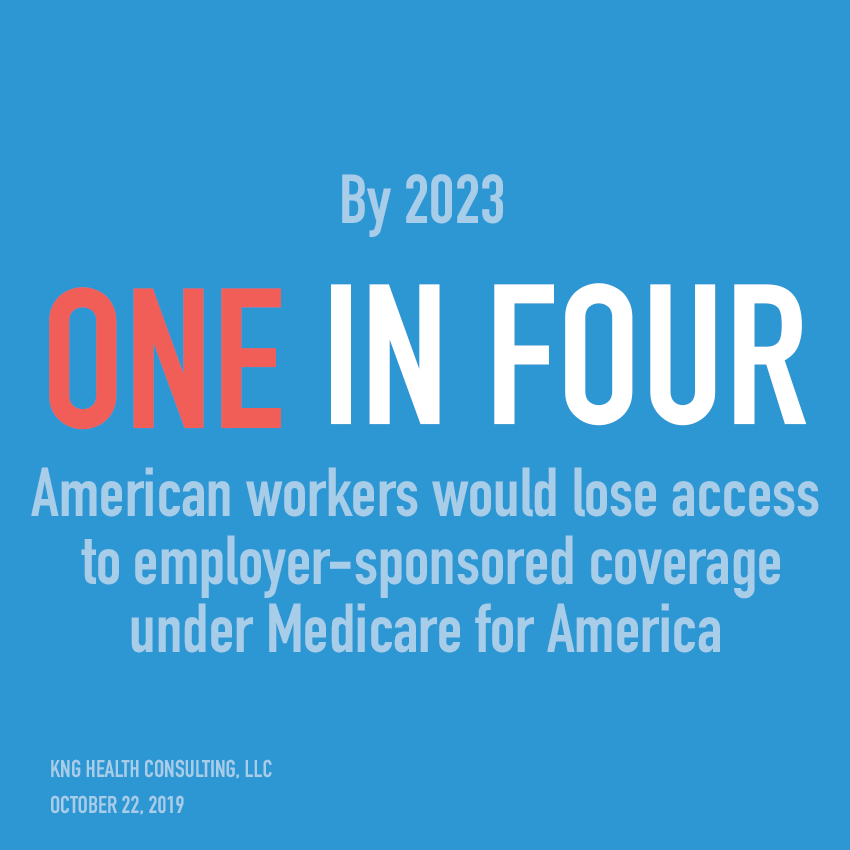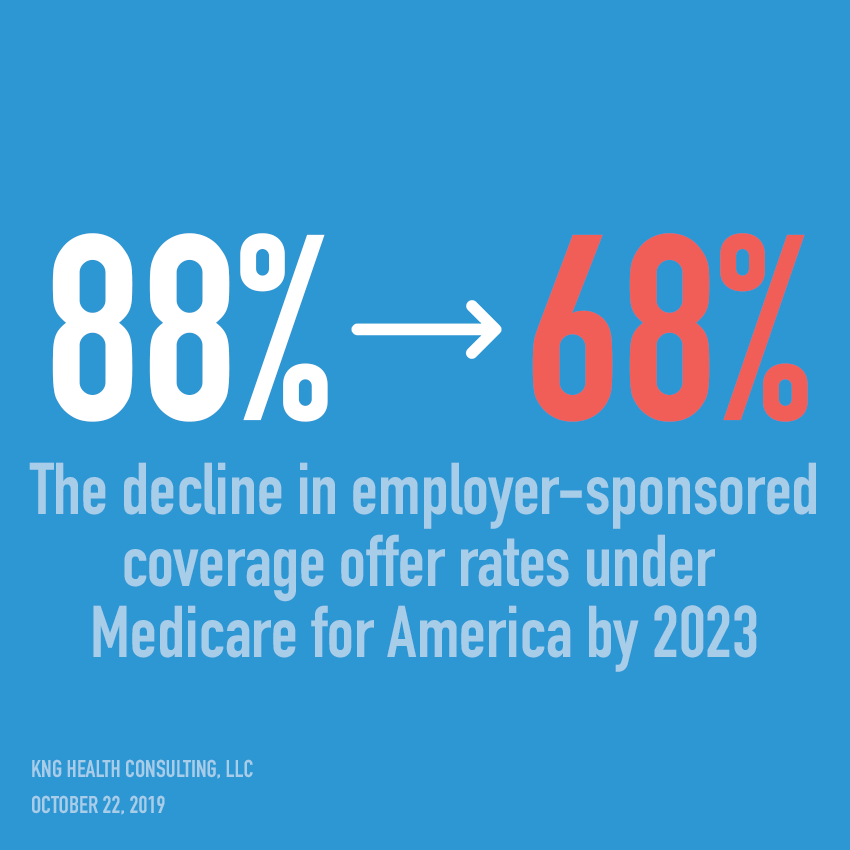As Americans learn more about proposed new government-controlled health insurance systems – like Medicare for All, the public option, Medicare buy-in and other similar one-size-fits-all systems – a new study by KNG Health Consulting is providing a glimpse into the real-life consequences these systems could have on American families.
KNG’s study, “The Impact of Medicare for America On The Employer Market and Health Spending,” reviews the impact that one of these specific “fallback” proposals – Medicare for America – could have if implemented.
Among the most startling findings, Medicare for America could force one-third of American workers off of their current employer-provided health care coverage, also known as employer-sponsored insurance (ESI).

This is yet another reminder that millions Americans would, in fact, not be able to keep their current coverage under such a proposal – and that a new government insurance system would be a “stepping stone” to a one-size-fits-all system run by politicians.
Under Medicare for America, the study also finds:


And instead of addressing rising health care costs, the study finds that this new government-controlled health insurance system “would increase total health care spending, with the largest spending increases occurring among those who already had public coverage through Medicare or Medicaid.”
Impact on Private Insurance:
Dr. Scott Atlas of Stanford University explained recently in The Wall Street Journal, these types of government-controlled health insurance systems would “mainly erode, or ‘crowd out,’ private insurance, rather than provide coverage to the uninsured.” Not only that, “[t]he public option would cause premiums for private insurance to skyrocket because of underpayment by government insurance compared with costs for services … A single-payer option is not a moderate, compromise proposal. Its inevitable consequence is the death of affordable private insurance.”
KNG’s study finds that to be true, with primary study authors Lane Koenig and Asha Saavoss noting that under Medicare for America:
“About one-in-nine private-sector ESI enrollees would disenroll by 2023 (16 million) and one-in-four (37 million) would disenroll by 2032… workers at small firms would be disproportionately affected, with more than half losing access to ESI through their employer by 2032.”
The KNG study on “Medicare for America” points to an unaffordable new government-controlled health insurance system that reduces Americans’ choice and control over their care. Whether it’s called Medicare for All, Medicare for America, Medicare buy-in or the public option, Americans would pay more and wait longer for worse care.